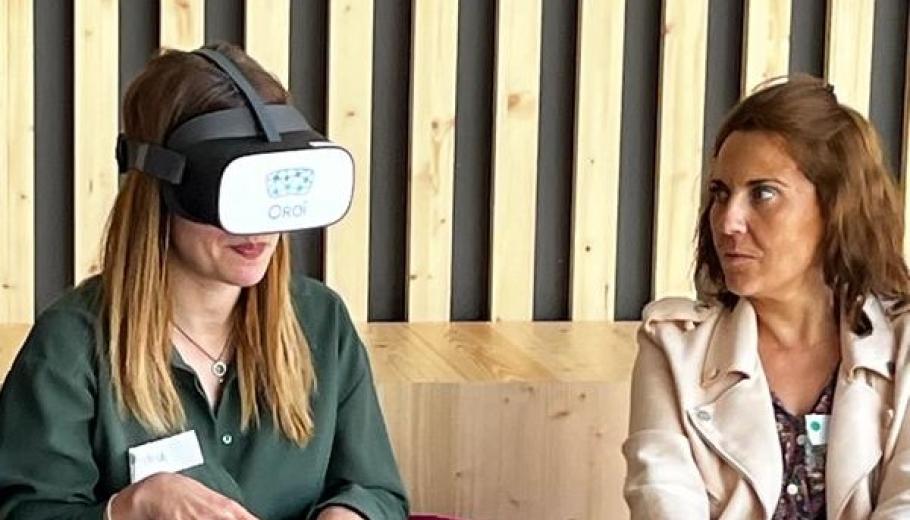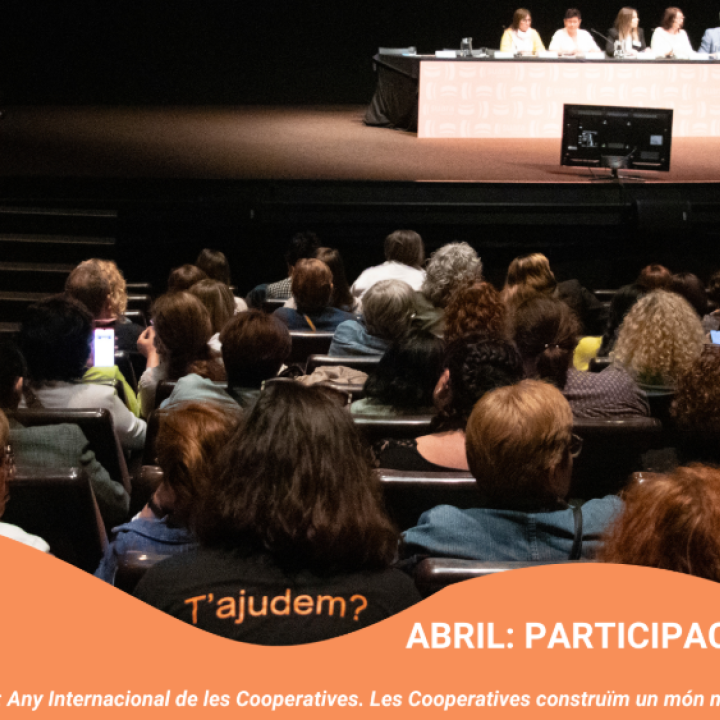Suara Cooperativa, in collaboration with the Basque startup Oroi, have launched a pilot test to use Virtual Reality to improve the quality of life of both the elderly, but also children, teenagers or young people.
In the case of the elderly, virtual reality is being implemented in three homes for the elderly in Barcelona in Can Travi, Camí Antic and Pere IV, as well as in the Milenario Day Center, also in this city. In addition, it is expected that in the immediate future it will also be used in some homes of the Home Care Service (SAD) of Hospitalet.
However, this technology can not only be useful among the elderly, but can also improve the lives of many people in any age group. For this reason, it has also begun to be used at Els Químics Espai Jove in Girona.
This pilot test, for example, is making it possible to travel through the immersive experience in the country of origin of boys and girls who have lived through a migration process or for older people to visit significant places in their lives.
What experiences are available?
The virtual glasses have three different experiences based on Virtual Reality glasses, which can improve the health of both the elderly and young people.
- Cognitive: by simulating daily life activities, cognitive stimulation is encouraged and concentration is facilitated, helping people of all ages to maintain mental health and functional autonomy.
- Relaxation: 360-degree panoramic views and landscapes with Virtual Reality glasses help reduce stress, anxiety and improve emotional well-being.
- Cognitive stimulation: language, memory and attention exercises promote cognitive development and can be useful for adolescents, young adults and adults.
Through these experiences, both the health and well-being of the people who have access to them are improved. On the one hand, the right to dignified aging is favored with sessions that help reduce both physical and cognitive deterioration through personalized stimuli in accordance with lived experiences or current realities.
These experiences improve both the health and well-being of the people who have access to them. On the one hand, the right to dignified aging is promoted with sessions that help to reduce both physical and cognitive deterioration through personalized stimuli in accordance with lived experiences or current realities.
On the other hand, in the case of children, adolescents or young people, the aim is to guarantee their access to health and education or to preserve their identity, fundamental issues for their development and growth in accordance with the Universal Charter of Children's Rights, approved on November 20, 1959 by the UN, an event that is commemorated every year on that date.
For this reason, initiatives are carried out to look after their psychological, emotional or physical health; others aimed at reinforcing their educational processes by improving their language, attention or memory; and, in the case of those from other countries, aimed at learning the local language and culture, but without forgetting their identity with experiences that recreate their place of origin.
These experiences have been developed thanks to a grant from the Singulars program of the Department of Social and Solidarity Economy of the Department of Business and Work.




